#the paradise syndrome
Text
5 times Spock chased Kirk through time and space + 1 where his behavior was suspicious
Feat. Extremely done Leonard “Bones” McCoy
1. The Gamesters of Triskelion:

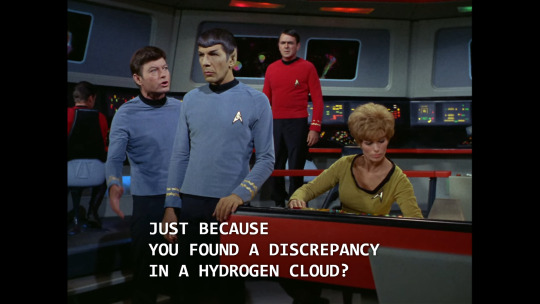
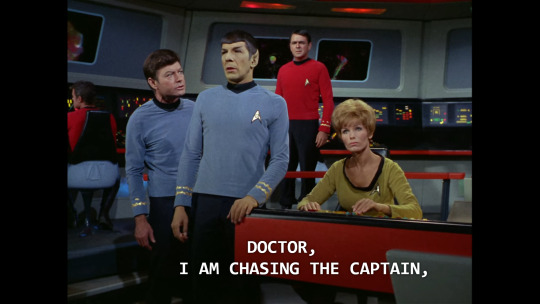
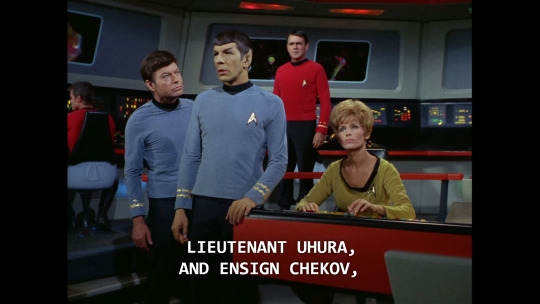
2. The Paradise Syndrome:
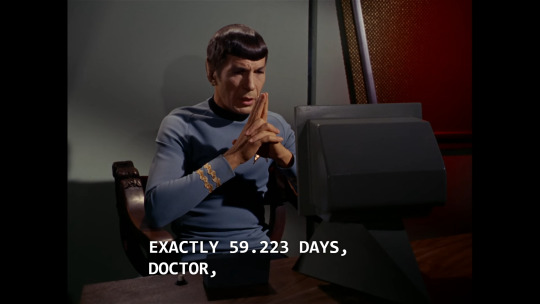

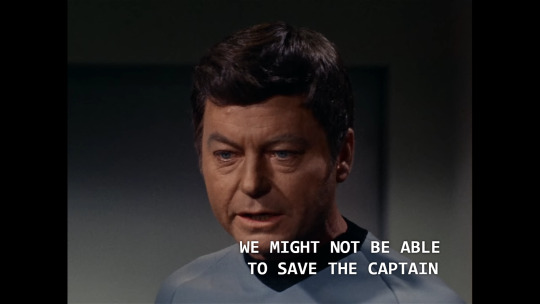
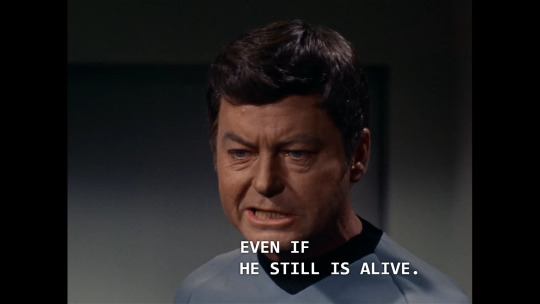
3. The Tholian Web:




4. Wink of an Eye:


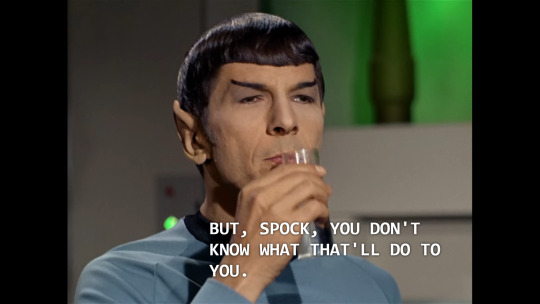

5. The Mark of Gideon:

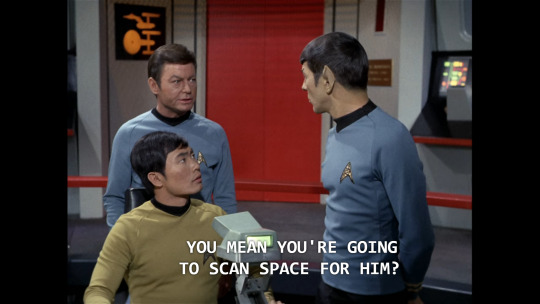
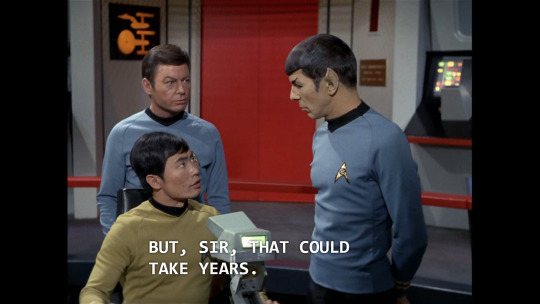
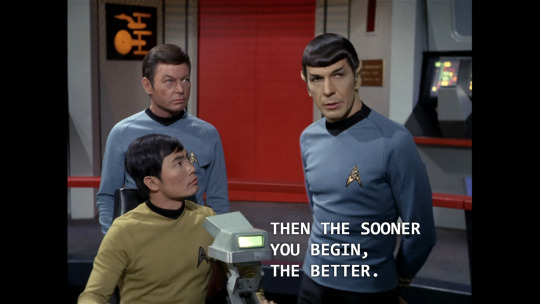
+1 All Our Yesterdays:
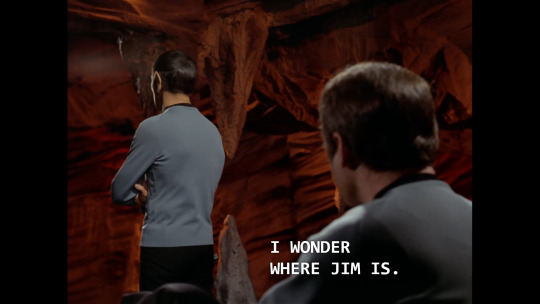
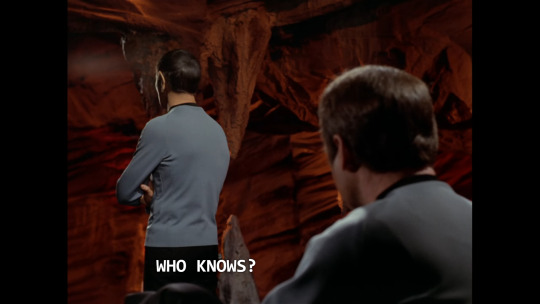
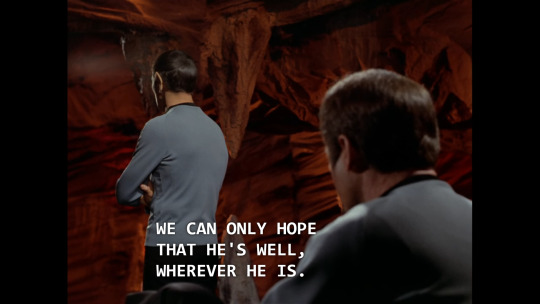

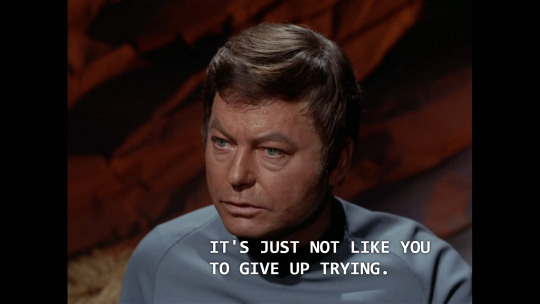
Aw, it’s not surprising that Bones could immediately tell that something was wrong with Spock. I mean, yes, they’re trapped 5000 years in the past on a frozen planet, but when did it ever stop Spock from looking for their Captain? LOL
#spock#james t. kirk#leonard mccoy#spirk#well that's how I see it at least#star trek tos#star trek the original series#bones is so done#someone give him a drink#the gamesters of triskelion#the paradise syndrome#the tholian web#wink of an eye#the mark of gideon#all our yesterdays#k/s#kirk x spock
591 notes
·
View notes
Text
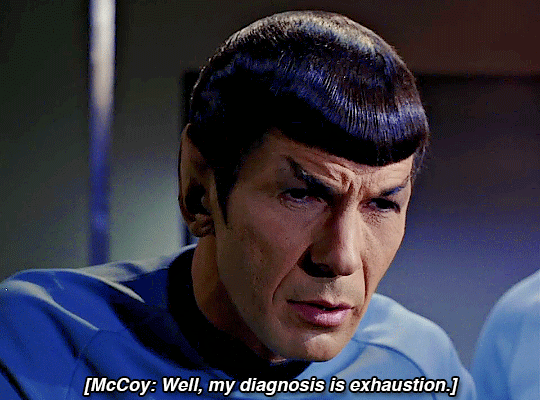
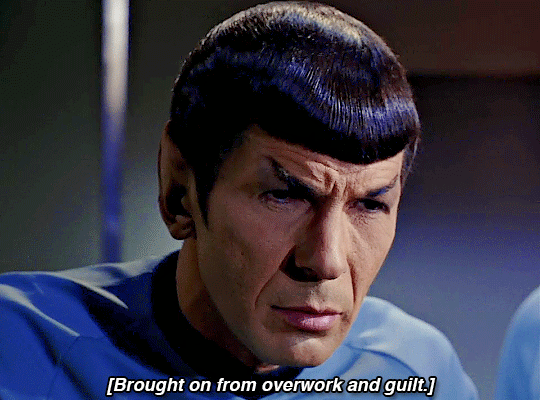



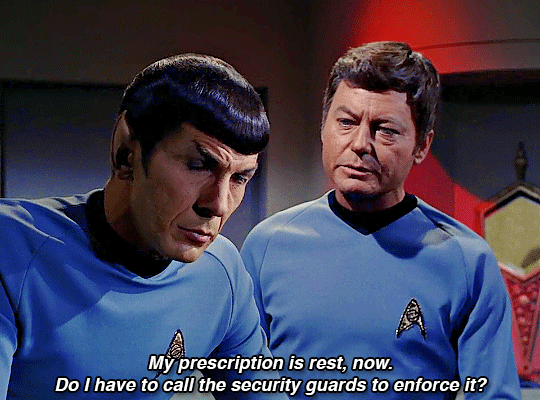


3x3 - The Paradise Syndrome
#favourite tos scene tbh#star trek#star trek tos#spock#leonard mccoy#the paradise syndrome#trekedit#originalposts*
525 notes
·
View notes
Text
If Spirk is Spock and Kirk, then Kirok is the other way around and stands for Kirk and Spock. I don’t make the rules around here
#star trek#star trek tos#i am kirok#the paradise syndrome#james t kirk#captain kirk#jim kirk#spirk#star trek: tos#star trek the original series#st tos#tos spirk#spock#mr spock#kirk x spock#kirk/spock#tos#tumblr trash#shitpost#crack#text post
125 notes
·
View notes
Text
look at this bitchy little move from spock in The Paradise Syndrome, moving his rock toward mccoy's to silently apply pressure to the situation
#he's so CUNTY in season three#i havent seen so many of these episodes since i was a kid#star trek#star trek: tos#spock#leonard mccoy#bones#spones#the paradise syndrome#star trek clips#video
133 notes
·
View notes
Text
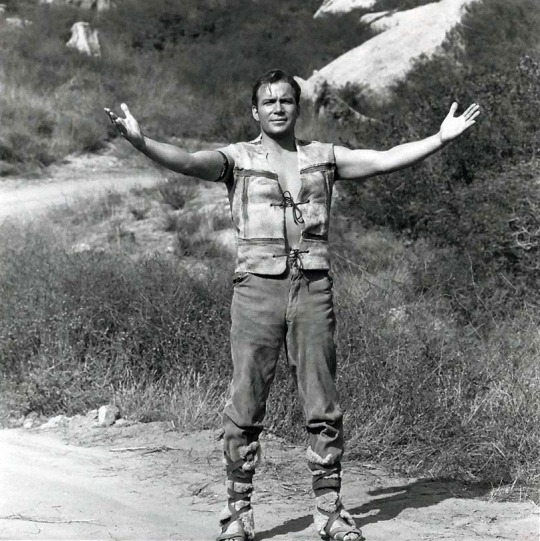
William Shatner waiting for the crew to get started on the set of "The Paradise Syndrome."
146 notes
·
View notes
Text
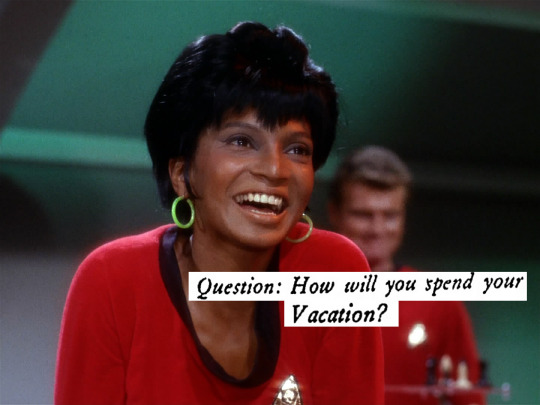
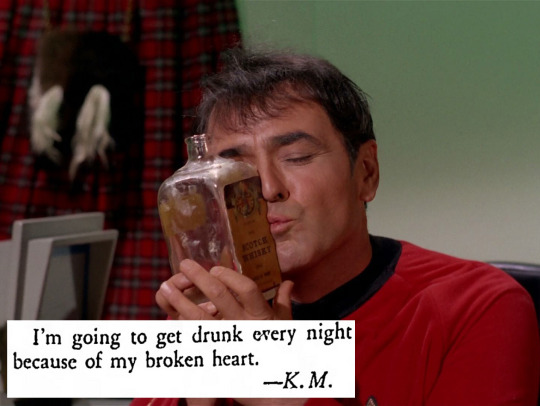

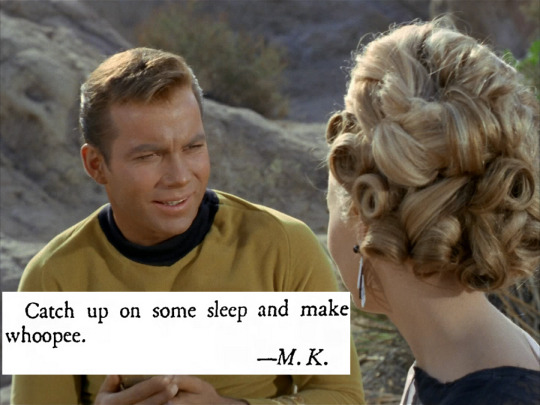
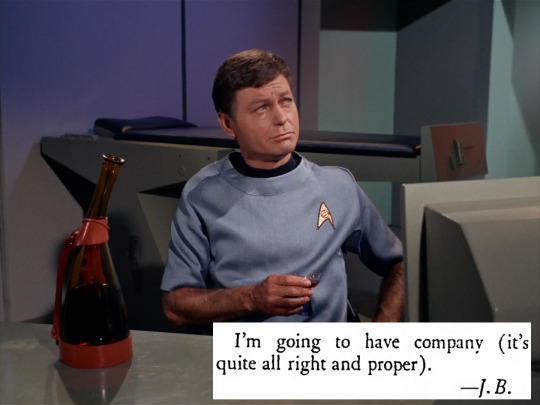
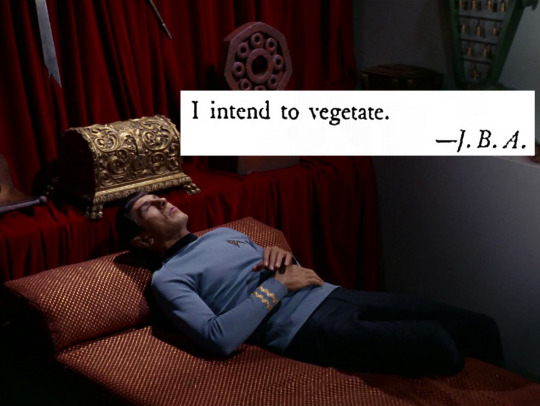
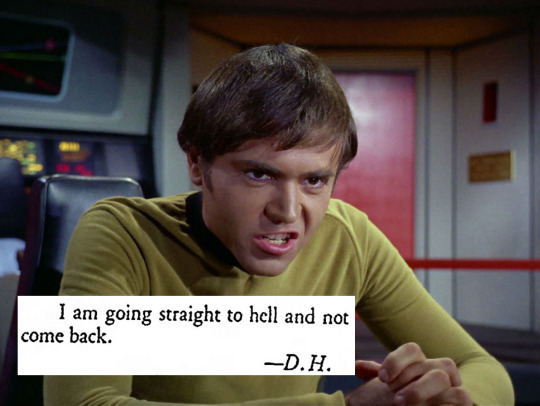
How the TOS crew is spending the holidays
(Original Post)
#star trek#star trek tos#nyota uhura#montgomery scott#hikaru sulu#jim kirk#leonard mccoy#spock#pavel chekov#bones mccoy#captain kirk#the naked time#the deadly years#the conscience of the king#shore leave#charlie x#the paradise syndrome#by any other name#barnard bulletin#we really haven't changed in hundreds of years#yesterdaysprint#yes i cut the word christmas#i'm jewish and so are three of these actors it's my prerogative :P#say the last one in chekov's accent in your head please
784 notes
·
View notes
Photo

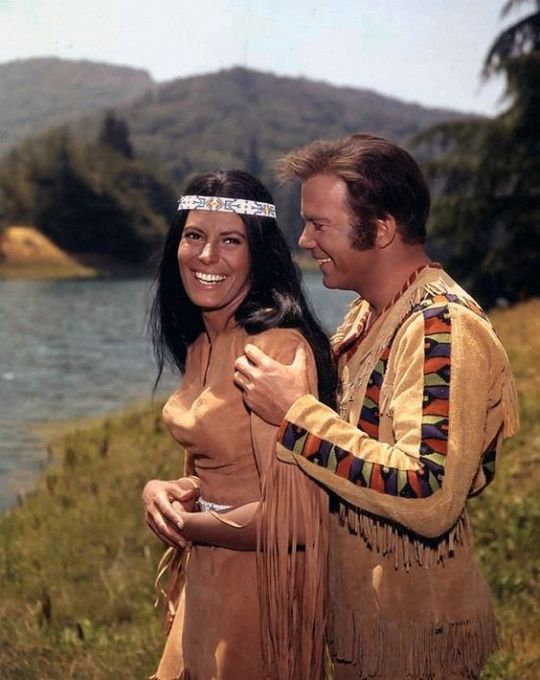

Sabrina Scharf and William Shatner - Star Trek (1968)
#william shatner#sabrina scharf#star trek tos#the paradise syndrome#60s tv series#60s sci-fi#captain kirk#miramanee#sixties#1968
184 notes
·
View notes
Text
A common apologia for STAR TREK — particularly TOS, but extending to the newest shows as well — is that it wants or tries to be progressive, but is tripped up by the writers' unconscious biases or the ostensibly more backward social attitudes of its time (whatever time that may be). This argument is somewhat perplexing because STAR TREK has never been what you'd call subtle in expressing its liberal imperialist values, either in 1966–1968 or now.
The core of STAR TREK, which is explained clearly in Roddenberry's pitch and the TOS writer's bible (excerpted at some length in Stephen Whitfield's THE MAKING OF STAR TREK, inter alia), is a hybridization of Horatio Hornblower, the C.S. Forester adventure novels about a heroic British naval officer during the Napoleonic wars, and the American Western, a genre that still dominated a big swath of American TV drama in the period when STAR TREK was conceived. Roddenberry himself had previously written for some of those shows, in particular HAVE GUN, WILL TRAVEL, and his pitch line for STAR TREK was "WAGON TRAIN to the stars."
To its credit, STAR TREK ended up being about more than just that, but Roddenberry was very clear that at heart, the series was about extending the conquest of the American frontier to the stars. Of the Enterprise and the other ships of its class, Roddenberry said:
In addition to the twelve Starships, there are lesser classes of vessels, capable of operating over much more limited distances. They are involved in commercial ventures, survey work, archaeological expeditions, medical research, and so on. The Starships are the heavy cruisers, the ones which can best defend themselves as they probe farther and farther out, opening new areas … and then the others follow. [Whitfield, 204; emphasis added]
Because TOS avoids saying anything very substantive about civilian life and government outside of Starfleet, we actually know very little about factors may be driving this wave of colonialism. If Earth in the TOS-era is a post-scarcity paradise (which, it should be noted, the original show does not ever actually say), why leave home for a riskier, hardscrabble life on worlds like Rigel XII ("Mudd's Women") or Cestus III ("Arena")? Part of it is plainly capitalist interests: There are explicitly opportunities to strike it rich discovering or exploiting valuable resources (or fleecing those who have or hope to, as Harry Mudd does). The Federation is also keen to cement its political hold on worlds that are near the borders of rival empires; the plot of "The Trouble with Tribbles," for example, hinges on the Federation's determination to colonize Sherman's Planet, which is also claimed by the Klingon Empire.
However, these plot details are to some extent beside the point: The premise of STAR TREK, and of most Westerns, is that the importance and heroic necessity of colonizing and "developing" the frontier, bringing (white) civilization to the "savage" wilderness, is self-evident.
Much of STAR TREK is predicated on concepts of "social evolution," the idea that there are a series of consistently defined hierarchical stages from the primitive to the advanced. TOS often states this quite explicitly, but it has remained a key feature of the STAR TREK premise up to the present. This process of advancement is described as both natural and a matter of moral urgency: Kirk rails against the "stagnation" of less-advanced societies, and on multiple occasions argues that the importance of reversing stagnation (or devolution) justifies violating the Prime Directive with dramatic interventionist action to put a civilization back on what he considers the proper track.
The concepts of social evolution STAR TREK espouses are fundamentally racist — it's a philosophy that rationalizes colonial exploitation (and in the real world even slavery) — and play into the franchise's virulent anti-indigenous attitudes. Indeed, STAR TREK frequently takes an openly contemptuous view of "primitive" peoples, who in TOS are often presented as simpletons, either kindly child-men (e.g., "The Apple") or dangerous savages driven by quasi-animal cunning (as with some of the characters in "A Private Little War"). Probably the ugliest example in TOS is "The Paradise Syndrome, where Kirk loses his memory and falls in with a society of American Indians transported centuries earlier to a distant planet; the story emphasizes that, even deprived of the knowledge and technology of his century, Kirk is still the intellectual superior of the people around him (who of course are played by white actors in redface). However, this a recurring theme throughout STAR TREK: Indigenous species are consistently presented as something less than people unless their stage of advancement approximates that of 20th century Earth (as with the Roman proconsul in "Bread and Circuses," who is one of the very few indigenous "primitives" to be credited with any kind of intellectual sophistication). The application of the Prime Directive (which is wildly inconsistent and honored more in the breach than in the observance) is based not on respect for cultural differences, but on a patronizing desire to "protect" indigenous pre-warp civilizations from ideas that their primitive minds can't yet handle.
STAR TREK pays lip service to the idea of cultural and racial diversity, and the Vulcan slogan (in the third season of TOS) "Infinite Diversity in Infinite Combinations." However, what it most consistently espouses is the importance of ensuring the march of social evolution along orthodox lines and the eventual absorption of other races, cultures, and species into the Federation's (white American liberal) ideas of socioeconomic and technological progress. As Kirk says to Ayelborne in "Errand of Mercy":
KIRK: Gentlemen, I must get you to reconsider. We can be of immense help to you. In addition to military aid, we can send you specialists, technicians. We can show you how to feed a thousand people where one was fed before. We can help you build schools, educate the young in the latest technological and scientific skills. Your public facilities are almost nonexistent. We can help you remake your world, end disease, hunger, hardship. All we ask in return is that you let us help you. Now.
"Errand of Mercy" is notable in that Kirk's condescension toward the Organians proves to be ill-founded: What he and Spock assumed was a stagnant, primitive society is actually a kind of backyard bird feeder maintained by a vastly more advanced species that is trying very hard to be patient as Kirk and the Klingons strut around making pronouncements. At the end of the episode, Kirk admits openly that he's embarrassed at how badly he misread the situation. However, this doesn't ultimately lead him to question his presumptions about social progress; he simply admits that in this specific case, they were misapplied.
The result of "Errand of Mercy," as revealed in the second season of TOS, is a peace treaty between the Federation and Klingons that makes the show's endorsement of colonialism and economic imperialism that much clearer: As we're told in "The Trouble with Tribbles," under this new treaty, if there is a territorial dispute over a newly discovered or colonized world, "one side or the other must prove it can develop the planet most efficiently," with the ostensibly benevolent and freedom-loving Federation and the ostensibly "brutal and aggressive" Klingon Empire vying to determine who will be permitted to exploit that world and its resources. The exact role of the Organians in the framing of this treaty is unclear — they have no need of or interest in Federation-style economic development, and nothing in "Errand of Mercy" suggests that they see much value in it, although the Organians do say they find the prospect of a shooting war between the Federation and the Klingon Empire both morally objectionable and "intensely painful" — but its result is to more firmly establish the Cold War conflict between the Federation and Klingons as the competition of two rival colonial powers for control of valuable territory and resources. Their conflict is a primarily economic one, not really substantively based on what Kor calls the "minor ideological differences" between the two empires, which both Kor and the Organians regard as incidental. (Kirk takes issue with that contention, but as previously noted, Kirk has more than once used the explicit threat of planetary genocide to get what he wants, so Kor probably has a point here!)
Later STAR TREK shows are sometimes more self-conscious about these values, but they seldom actually question them, and there's really only so far that STAR TREK can move these load-bearing narrative elements without becoming something really fundamentally different than it is. Moreover, DISCOVERY, STRANGE NEW WORLDS, and PICARD have seemed committed to doubling down on many of the franchise's more disturbing ideological elements, while attempting to paper over viewer unease with appeals to nostalgia, faux-patriotism, and sentimentality.
#teevee#star trek#star trek tos#the making of star trek#gene roddenberry#stephen whitfield#errand of mercy#organians#the paradise syndrome#anti-indigenous racism
14 notes
·
View notes
Text
lmaooooo Jim talking to his boyfriends about his wife
9 notes
·
View notes
Text
So like, I’ve been bitter about Sybok not even getting to read Kirk’s mind in Star Trek V, but today I made a connection that justifies why Kirk was so adamantly against having Sybok even try to take away his pain.
It’s cuz it’s happened before.
#star trek#star trek tos#james t kirk#star trek v: the final frontier#sybok#the paradise syndrome#paradise syndrome#look I’ll be the first to point out this episode’s racism and shit but it makes a compelling reason for Kirk to not want to even try#Sybok’s crap#like not even tempted#it’s cuz it happened before and the people he loved died
18 notes
·
View notes
Text
I Need a “I Know You’re In There” Fight between Pike & Spock like I Need AIR in my LUNGS!
More specifically I want Spock doing the “I Know You’re In There” part of the fighting.
The ANGST potential for it is sooooooo good!
I mean we know Chris wouldn’t hurt a fly (not without VERY good reason) and especially wouldn’t hurt Spock. Especially since now he’s probably gonna be a little extra protective of Spock now that he’s seen what could happen to him? Even if he weren’t control/aware of himself that’d still probably bother him deeply.
But then the THING is Vulcans are so much stronger than Humans that we know Spock is restraining himself and relying on the neck pinch to not kill his opponents. Chris is a smart and experienced fighter, it wouldn’t be a neck pinch one-and-done if they had to throw down. Spock would want to hold back even more because it’s human dad. Which would give a mindcontrolled/possessed/whatever Pike more chances to hurt him.
It would also flip the script of Spock usually being the one who gets mindjacked into hurting others in TOS. Then oh my GAWD the frickin juicy Mind Meld angst would be DELICIOUS. Even independently from a shadow self/I know you’re in there style confrontation.
I’m just thinking about how Prime!Spock doesn’t know the grim and violent details of Pike’s accident. If this more vulnerable, emotional babey Spock witnessed that while trying to SAVE Pike’s mind from something?! Oh my god!! It’d be like “we are Kirock” thing Spock did to save Jim’s life in “The Paradise Syndrome” but like, hopefully from a much better episode!
SNW I beg you! Let this be a thing that happens PLEASE.
#I want this because I like PAIN#also it would be hot but what’s more important is the narratively juicy angst potential#star trek#star trek strange new worlds#snw speculation#strange new worlds#snw#star trek snw#angst#tropes#captain pike#captain christopher pike#Christopher pike#anson mount#Spock#s’chn t’gai spock#ethan peck#star trek tos#the paradise syndrome#ichayalovescaptainpike
41 notes
·
View notes
Text



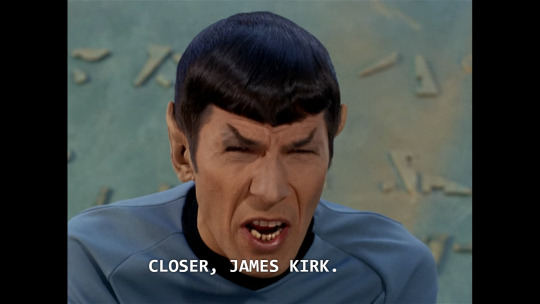
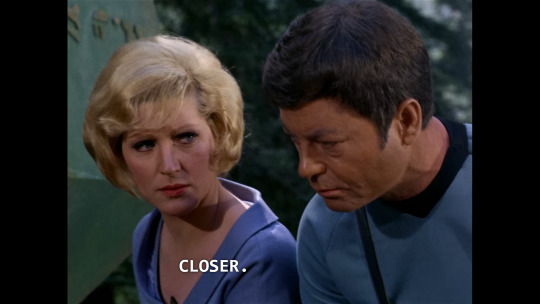
Chapel's face is killing me LOL
[s3 e3 - The Paradise Syndrome]
Bonus:
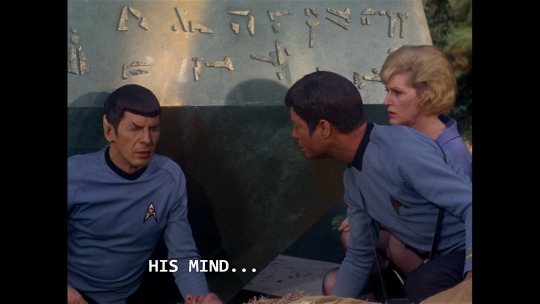
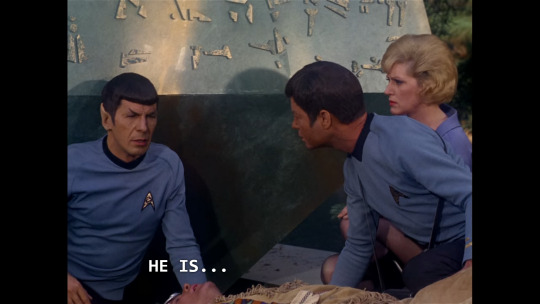

<3
#spirk#star trek tos#k/s#kirk x spock#star trek the original series#spock#james t. kirk#christine chapel#the paradise syndrome
236 notes
·
View notes
Text
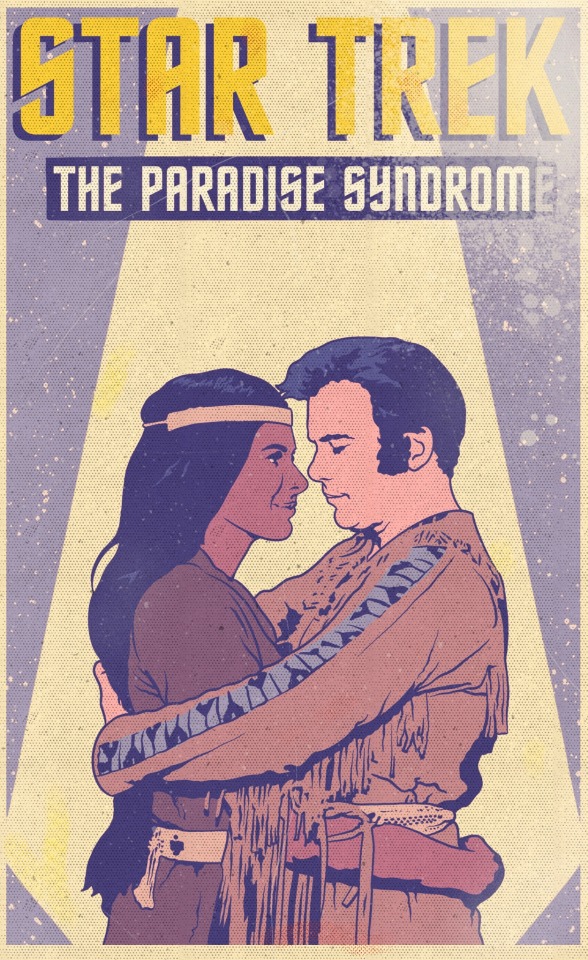
32 notes
·
View notes
Text
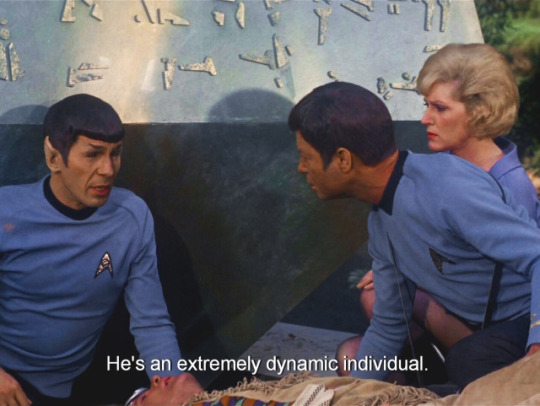
Translation: he’s bi
#star trek tos#the paradise syndrome#james t kirk#jim kirk#spock#star trek: tos#spirk#star trek spirk#captain kirk#kirk/spock#space husbands#shitpost#tumblr trash#star trek the original series
127 notes
·
View notes
Text
Spock and Bones leave Jim on a planet for like 2 months and he managed to get married as well as become a false-god.
6 notes
·
View notes
Text
the paradise syndrome is such an insanely horrible piece of media that i hope i lose the memory of my entire life tomorrow so i dont have to remember watching it
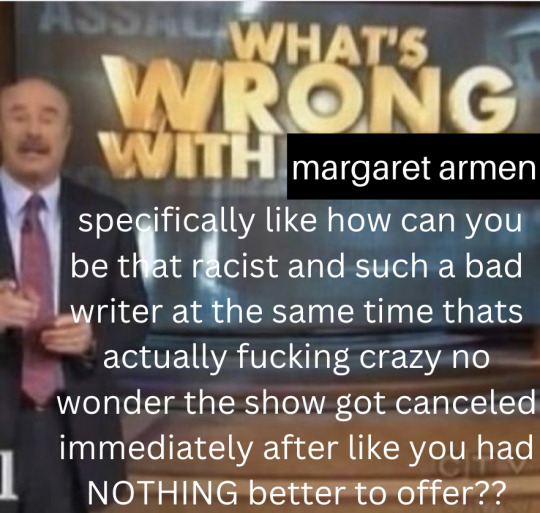
on the plus side it was funny watching every actor give up

#the paradise syndrome#worst episode by far which is crazy when we have the omega glory come out of the same show
3 notes
·
View notes